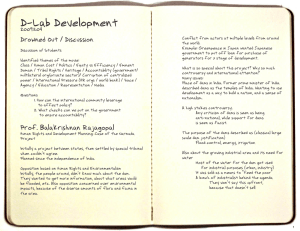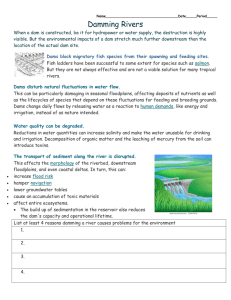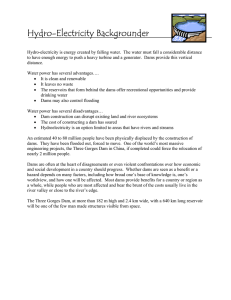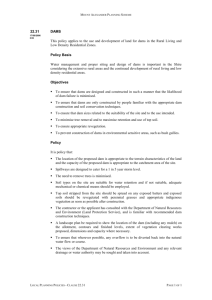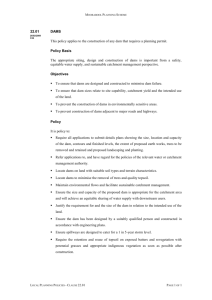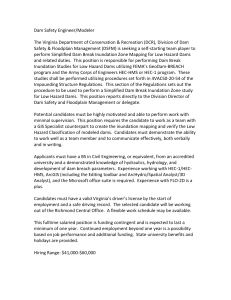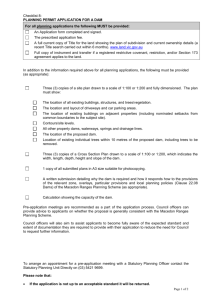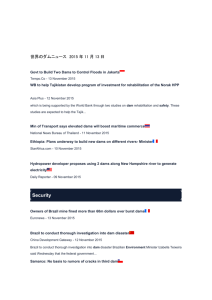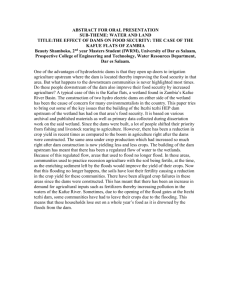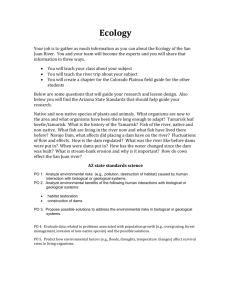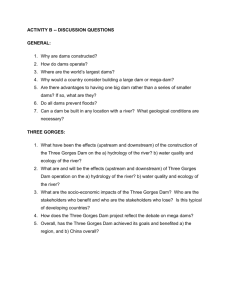reflection 2
advertisement
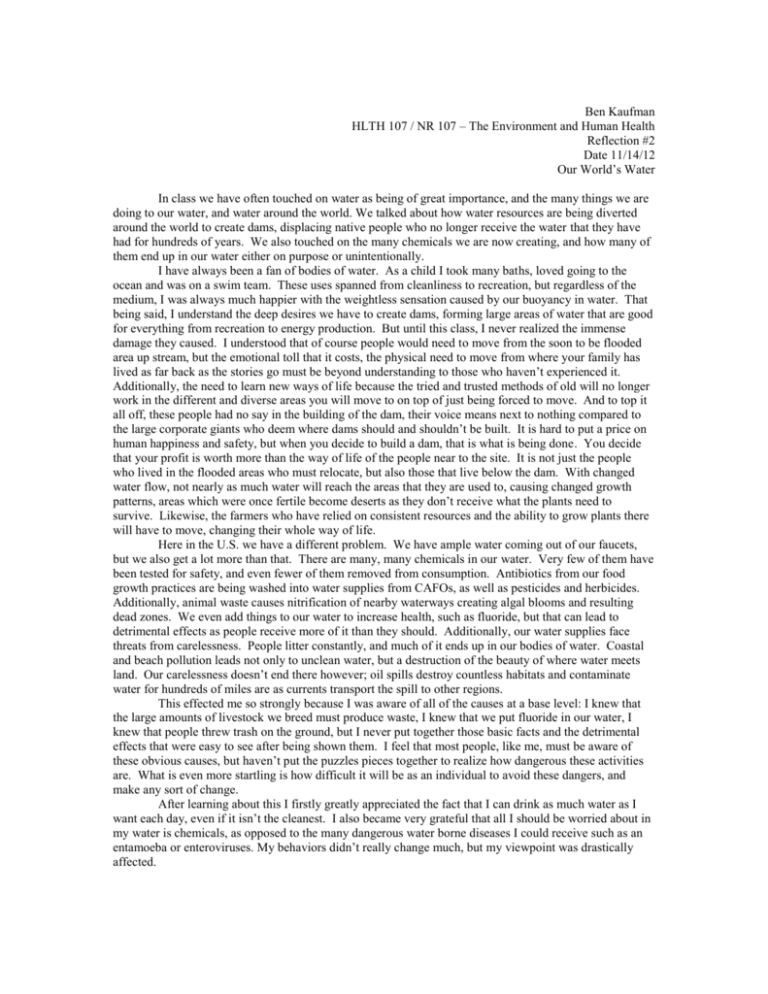
Ben Kaufman HLTH 107 / NR 107 – The Environment and Human Health Reflection #2 Date 11/14/12 Our World’s Water In class we have often touched on water as being of great importance, and the many things we are doing to our water, and water around the world. We talked about how water resources are being diverted around the world to create dams, displacing native people who no longer receive the water that they have had for hundreds of years. We also touched on the many chemicals we are now creating, and how many of them end up in our water either on purpose or unintentionally. I have always been a fan of bodies of water. As a child I took many baths, loved going to the ocean and was on a swim team. These uses spanned from cleanliness to recreation, but regardless of the medium, I was always much happier with the weightless sensation caused by our buoyancy in water. That being said, I understand the deep desires we have to create dams, forming large areas of water that are good for everything from recreation to energy production. But until this class, I never realized the immense damage they caused. I understood that of course people would need to move from the soon to be flooded area up stream, but the emotional toll that it costs, the physical need to move from where your family has lived as far back as the stories go must be beyond understanding to those who haven’t experienced it. Additionally, the need to learn new ways of life because the tried and trusted methods of old will no longer work in the different and diverse areas you will move to on top of just being forced to move. And to top it all off, these people had no say in the building of the dam, their voice means next to nothing compared to the large corporate giants who deem where dams should and shouldn’t be built. It is hard to put a price on human happiness and safety, but when you decide to build a dam, that is what is being done. You decide that your profit is worth more than the way of life of the people near to the site. It is not just the people who lived in the flooded areas who must relocate, but also those that live below the dam. With changed water flow, not nearly as much water will reach the areas that they are used to, causing changed growth patterns, areas which were once fertile become deserts as they don’t receive what the plants need to survive. Likewise, the farmers who have relied on consistent resources and the ability to grow plants there will have to move, changing their whole way of life. Here in the U.S. we have a different problem. We have ample water coming out of our faucets, but we also get a lot more than that. There are many, many chemicals in our water. Very few of them have been tested for safety, and even fewer of them removed from consumption. Antibiotics from our food growth practices are being washed into water supplies from CAFOs, as well as pesticides and herbicides. Additionally, animal waste causes nitrification of nearby waterways creating algal blooms and resulting dead zones. We even add things to our water to increase health, such as fluoride, but that can lead to detrimental effects as people receive more of it than they should. Additionally, our water supplies face threats from carelessness. People litter constantly, and much of it ends up in our bodies of water. Coastal and beach pollution leads not only to unclean water, but a destruction of the beauty of where water meets land. Our carelessness doesn’t end there however; oil spills destroy countless habitats and contaminate water for hundreds of miles are as currents transport the spill to other regions. This effected me so strongly because I was aware of all of the causes at a base level: I knew that the large amounts of livestock we breed must produce waste, I knew that we put fluoride in our water, I knew that people threw trash on the ground, but I never put together those basic facts and the detrimental effects that were easy to see after being shown them. I feel that most people, like me, must be aware of these obvious causes, but haven’t put the puzzles pieces together to realize how dangerous these activities are. What is even more startling is how difficult it will be as an individual to avoid these dangers, and make any sort of change. After learning about this I firstly greatly appreciated the fact that I can drink as much water as I want each day, even if it isn’t the cleanest. I also became very grateful that all I should be worried about in my water is chemicals, as opposed to the many dangerous water borne diseases I could receive such as an entamoeba or enteroviruses. My behaviors didn’t really change much, but my viewpoint was drastically affected.
